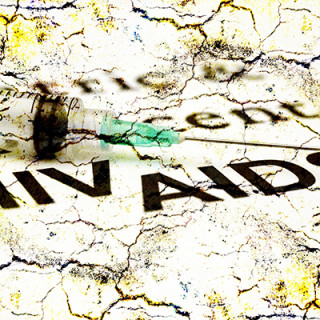The sexual habits of Ugandan students mapped
Uganda has become known for its strong condemnation of homosexuality, which is seen as something unnatural and “un-African”. Homosexual acts are against the law and can lead to long prison sentences. Yet, studies at Lund University show that homosexuality is as common in Uganda as in the rest of the world.
The studies were conducted by Anette Agardh, reader in Global Health, and her colleagues. As early as 2004 Anette Agardh started a student-led project at Mbabara University in Uganda. Its goal was to prevent sexual risk behaviour and HIV among the students. The programme has also raised the awareness of the teaching staff and management – the students have, for instance, started a project to combat sexual harassment among teaching staff and students.
Simultaneously, another research project was launched to collect a variety of data.
“In 2005 and 2010 we conducted major studies of all students at Mbabara University. The students responded to an extensive questionnaire regarding their social background, physical and mental health, lifestyle, religion and sexual experiences. Questions about sexual coercion and homosexuality were also included”, says Anette Agardh. The study is the only one in Africa (except South Africa, where homosexuality is not illegal) to receive permission to study the occurrence of same-sex relationships.”
“Sexual coercion was not always in the form of intercourse.”
One of the studies showed that a third of the students had been victims of some form of sexual coercion, which was often linked to mental illness and sexual risk behaviour, such as early sexual debut and many sexual partners. The causality could not be determined, but it is known that abuse has a negative impact on a person’s self-esteem and can make the victims less protective of themselves.
Sexual coercion was not always in the form of intercourse, but could invlove oral sex or forced masturbation. That almost a third of the students had been victims of such coercion may seem like a high number. However, it is not higher than in other countries, including Sweden which showed similar results in the study Anette Agardh conducted last year.
Furthermore, the proportion of young people who have had fantasies of or relationships with someone of the same sex is at the same level in Uganda as in other countries. One difference is that young homosexuals in Uganda feel worse than in countries with a more permissive attitude. Threats, violence and discrimination affect their health in many ways. Lesbian women are subject to so-called “corrective rape”; they are reluctant to seek treatment for their health problems due to prejudice among medical staff, and so on.
Anette Agardh recently wrote an article that focuses on the existence of same-sex relationships and the connection to sexual risk behaviour and violence, based on the two major Mbabara surveys. The article, which has been submitted to an international scientific journal, is bound to lead to a lot of discussion precisely due to Uganda’s strong homophobic policies.
This year, Anette Agardh’s group together with researchers in Tanzania initiated a project that aims to increase HIV testing and treatment of men who have sex with other men. Stigma and discrimination within healthcare contribute to many men neither daring nor wanting to get tested for HIV and other STDs. The three-year project is therefore not only aimed at the men themselves but also the doctors, nurses, pharmacists and others who come into contact with them.
Text: Ingela Björck
Illustration: Catrin Jakobsson





